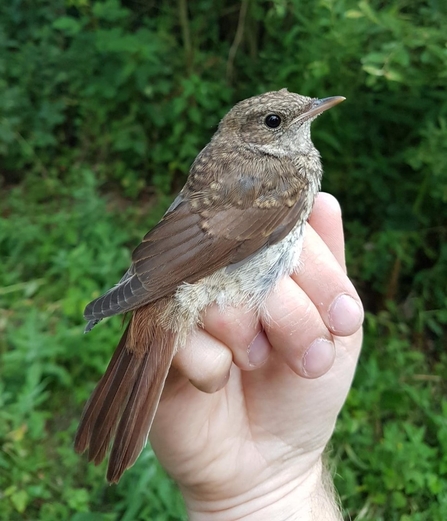The CES was the first national standardised ringing program coordinated by the British Trust for Ornithology (BTO) and has been running in the UK since 1983. The scheme monitors the breeding success and survival of 24 common migratory and songbird species found in woodland, scrub and reedbeds. Ringers use the same number of mist nets, placed in the same locations, for the same period of time for 12 visits each year to keep the results consistent.
The CES ringing scheme was adopted quite early on at Rutland Water and has enabled us to monitor the breeding success of wetland species such as reed warbler, reed bunting and sedge warbler as the Nature Reserve, which was created along with the Reservoir back in 1976, has become established.

